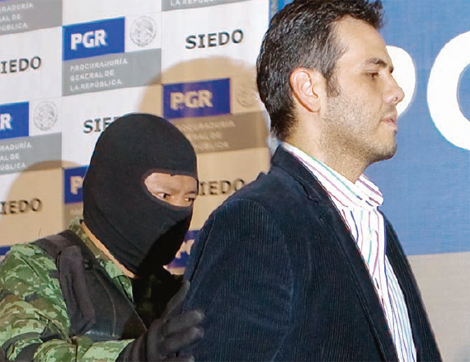
By Keith Johnson
On the heels of an official United States operation where federal agents allowed U.S. guns to fall into the hands of known criminals, the question that is now being asked is: Did drug enforcement agents look the other way as their informants smuggled tons of illegal narcotics into the United States?
According to a recent discovery motion filed on behalf of Vicente Zambada-Niebla, a top lieutenant for Mexico’s notorious Sinaloa drug cartel who now stands trial in Chicago on a variety of narcotics trafficking charges:
“The United States has a policy of entering into agreements with individuals who they know are violent narcotics traffickers, so long as those persons are willing to provide information against other drug traffickers.”
Zambada-Niebla’s defense attorneys are seeking documents that prove U.S. federal agencies provided benefits, including immunity, to cartel members that were willing to provide information against rival drug gangs.
These court documents highlight the story of Mexican attorney Humberto Loya, a high-ranking Sinaloa cartel member who is also a close confidant of Zambada-Niebla’s father, Ismael “Mayo” Zambada-Garcia. Both Loya and Mayo were indicted for their participation in a massive drug trafficking conspiracy in 1995. However, the case was dismissed in 2008 after it was revealed that Loya had served for 10 years as an informant for U.S. law enforcement.
The documents allege that sometime prior to 2004, the U.S. government entered into an agreement with Loya and the Sinaloa cartel. Under that agreement, the Sinaloa cartel, through Loya, was to provide information about rival gangs to the U.S. government. In return, the government agreed to dismiss its case against Loya and not to interfere with his drug trafficking activities and those of the Sinaloa cartel.
Mike Levine is a former Drug Enforcement Administration agent who has been called “America’s top undercover cop” by such mainstream media outlets as 60 Minutes. He recently spoke with this reporter and was asked if the allegations by Zambada-Niebla have any merit.
“Agents who handle informers on big cases—some of them, not all of them—are self-interested,” said Levine. “They really don’t care about anything but using the informant to generate career points. They get promoted based on intelligence reports they get from informers, and they look the other way on almost anything.”
Levine added: “You can’t do much more damage to the United States. Cops and agents try to get an ounce off the street while the CIA smuggles in 27 tons of cocaine. It’s really sad.”
Keith Johnson in an investigative journalist and host of the Revolt of the Plebs radio program.

